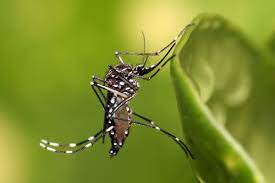Critical Health Advisory Issued Regarding Dengue and Malaria for Summer Travelers.
By Lokmat English Desk | Published: March 22, 2024 11:41 AM2024-03-22T11:41:15+5:302024-03-22T11:42:40+5:30
Travelers are being strongly advised to prepare and take preventative measures as mosquito-borne infections, including dengue and malaria, have ...

Critical Health Advisory Issued Regarding Dengue and Malaria for Summer Travelers.
Travelers are being strongly advised to prepare and take preventative measures as mosquito-borne infections, including dengue and malaria, have surged to pre-pandemic levels. The UK Health Security Agency (UKHSA) has cautioned that cases of these diseases have risen to levels not seen since 2019. While dengue is typically mild, it can be severe in certain instances, presenting flu-like symptoms. Malaria, on the other hand, manifests with fever, headaches, confusion, and muscle pains, among other symptoms, and can be fatal. Importantly, neither infection can be transmitted from person to person. The majority of registered cases in the UK were among individuals who contracted the diseases while traveling to Southern and Southeast Asia, particularly India.
There was also a spike in cases from Central America and the Caribbean, the UKHSA said. "If you are making plans to travel abroad this year, please take a moment to prioritise your health and plan ahead," Dr Dipti Patel, director of the National Travel Health Network and Centre, said. "If you feel unwell, seek medical attention and ensure you inform your healthcare provider that you have been travelling recently."Dr Philip Veal, a consultant in public health at the UKHSA, said there are a number of simple steps a person can take to reduce the risk of infection, including using insect repellent, covering exposed skin and sleeping under a treated bed net. “Even if you have visited or lived in a country before, you will not have the same protection against infections as local people and are still at risk,” he added. The Travel Health Pro website, which is supported by the UKHSA, provides information on health risks in countries across the world. It recommends travellers should consult a GP, nurse, pharmacist or travel clinic four to six weeks before their trip for advice on vaccinations.UKHSA also urged travellers to ensure they are fully up to date with their measles, mumps and rubella (MMR) jabs, especially if going abroad with children. It warned that returning from countries with a high circulation of measles could make any outbreaks at home worse.